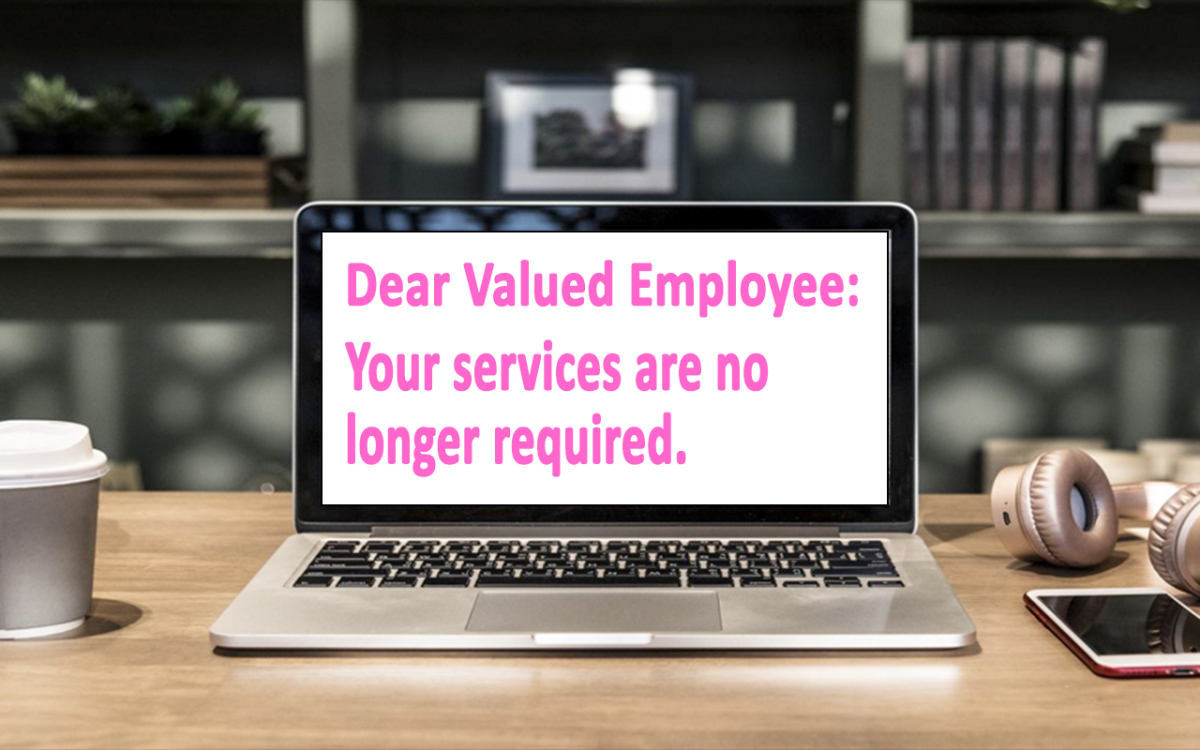Sudden job loss has re-emerged, cicada-like, to afflict millions of workers. After a decade of rising employment, job cuts are proliferating as pandemic-fighting, stay-at-home orders ripple through our economy.
New U.S. unemployment claims over the past three weeks totaled 3.50 million, 6.86 million and 6.60 million. (Update as of June 18: more than 45 million total.) Pundits muse that everyone will eventually know someone stricken by the COVID-19 disease. At this rate, you are even more likely to know or to be one of those unemployed because of it.

When unemployment came for me
Sudden unemployment arrives using a variety of assumed names. The temporary and hopeful: layoff, furlough. Euphemisms invented to soften the blow: restructuring, downsizing. The brutal and final: dismissal, termination. Whatever the wording, the job loser feels like, well, a loser.
Losing your job causes not only financial but social and emotional damage. I learned this firsthand. In late 2009, at the height of Great Recession layoffs, a restructuring brought my personal stay-home order. As my supervisor delivered the news, my blood pressure and temperature spiked. I felt I was shrinking as an invisible shield rose around me. His voice sounded distant and briefly resembled that wah-wah sound Charlie Brown’s teacher makes.
I stoically packed my belongings, drove home and spent the afternoon in a funk. Later, I realized something remained at the office that would be hard to retrieve—my identity.
Like most conscientious and ambitious workers, I’d invested myself thoroughly in the job. I’d previously spent two decades running my own business, and after selling it, my ownership mentality endured as a hired hand. Our work ethic encourages such commitment in ways large and small. Upon meeting someone, you ask, “What do you do?” not “What makes you, you?
Employers generally cultivate and reward loyalty and commitment—until they don’t. In fairness, they don’t intend to steal your identity. Safeguarding it is your responsibility.
My battle back from job loss
Realizing that I had allowed my job to define me, making myself vulnerable to a job loss robbing that identity, produced predictable symptoms: anger, anxiety, self-doubt and depression.
Fortunately, I had great support from my family, and my employer enrolled me in a professional re-employment counseling program. A dozen of us met weekly around a large conference table. We discovered how similar our job-loss stories were. We learned to take stock of our lives, to mine gems from our experiences and passions, and to articulate what made each of us unique and valuable. The goal was a polished resume, a confident interview and a new job.
Ultimately, I decided my path was to be a freelancer and to write a book. The counseling, however, proved invaluable to me, particularly the mantra to “network, network, network,” which factored in deciding to team up with a person I interviewed for the book as coauthor.
My advice
Millions who find themselves unemployed today unfortunately will lack the resources I had. Below are some key things I learned. For anyone who has recently lost their job, I hope these tips help you:
· Stop beating yourself up for losing your job
Unless you received explicit warnings and a performance-based cause for termination, you were not to blame. Second-guessing why you were let go will only delay your progress.
· Accept advice from those who know and care about you
If they say you seem depressed, believe them. Don’t waste time in denial; talk about your feelings. Seek professional guidance. Resist the impulse to “tough it out” on your own.
· Take advantage of every resource or program available to you
You need more than unemployment insurance checks. You need proven strategies. There are job and career resources available for free or low cost in most communities, often offered through public libraries.
· Maintain a regular work schedule at home
Your full-time job is now rebuilding you. Invest time in yourself with the seriousness it deserves. Schedule things you need to do. For example: “Tuesday, 9 to 11 a.m. — Contact friends and tell them what happened.” Your next job will likely come through someone you already know or meet through networking.
· Balance exercise, rest and introspection
Like a balanced diet, you need a healthy mix of activities. Working from home can enable habits of excess, like sleeping too late or drinking too much. Make time every day for exercise. Discipline your self-reflection by making lists of skills, interests and goals. Excessive introspection devolves into navel-gazing.
· Make your bed every day
It is not true that nobody will see it. You will. Whenever you do, it will be a reminder that you’re setting and meeting high expectations for yourself.
· Volunteer to help others
Nothing cures self-absorbed worry like helping other people. Volunteering creates purpose, brings satisfaction, forms new friendships and fills the void left by unemployment. Experts universally recommend it and affirm that many find their new calling this way.
Somewhere along your journey back to normal, the kindness of others will make a difference. Start paying it forward until that moment arrives.



